Causal Loop Diagram and Dynamic Model of Education and Employment
VerifiedAdded on 2022/10/15
|9
|473
|20
Project
AI Summary
This project presents a dynamic model of the education system, exploring the relationship between employment, education, and death rates. It begins with a causal loop diagram illustrating the interconnectedness of these factors. The project then introduces a stock and flow dynamic model, simulated using Excel, to analyze how changes in education and death rates impact the employment levels within a hypothetical population. The model assumes an initial state of full employment and assesses the effects of varying education and death fractions over time. The project includes an equilibrium state where education and death rates are balanced, and examines scenarios where either education or death rates are dominant, leading to shifts in employment levels. The project highlights the limitations of the model, acknowledging the simplified assumptions compared to real-world complexities. References from academic journals are provided to support the methodology and analysis.
1 out of 9
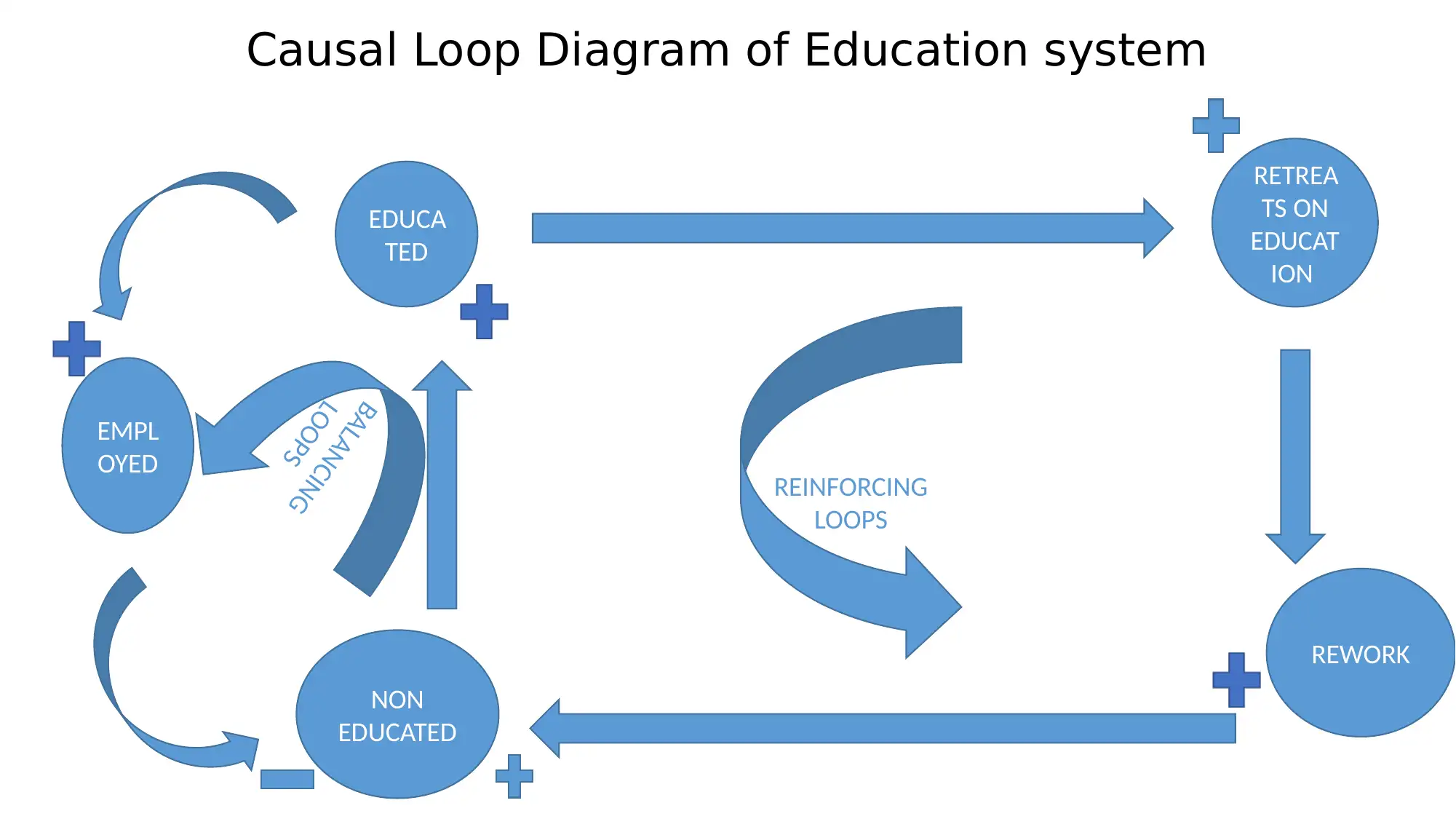
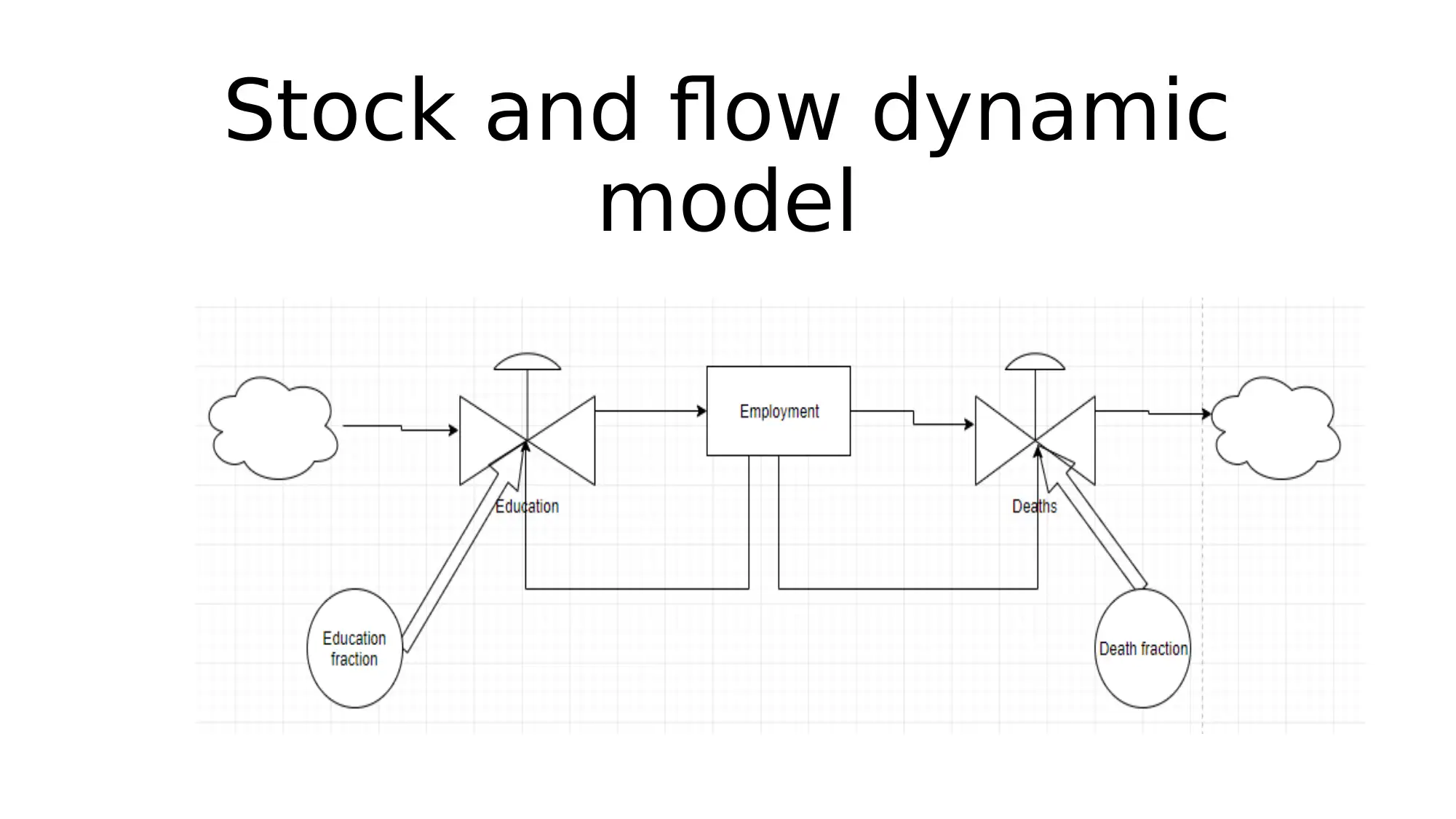
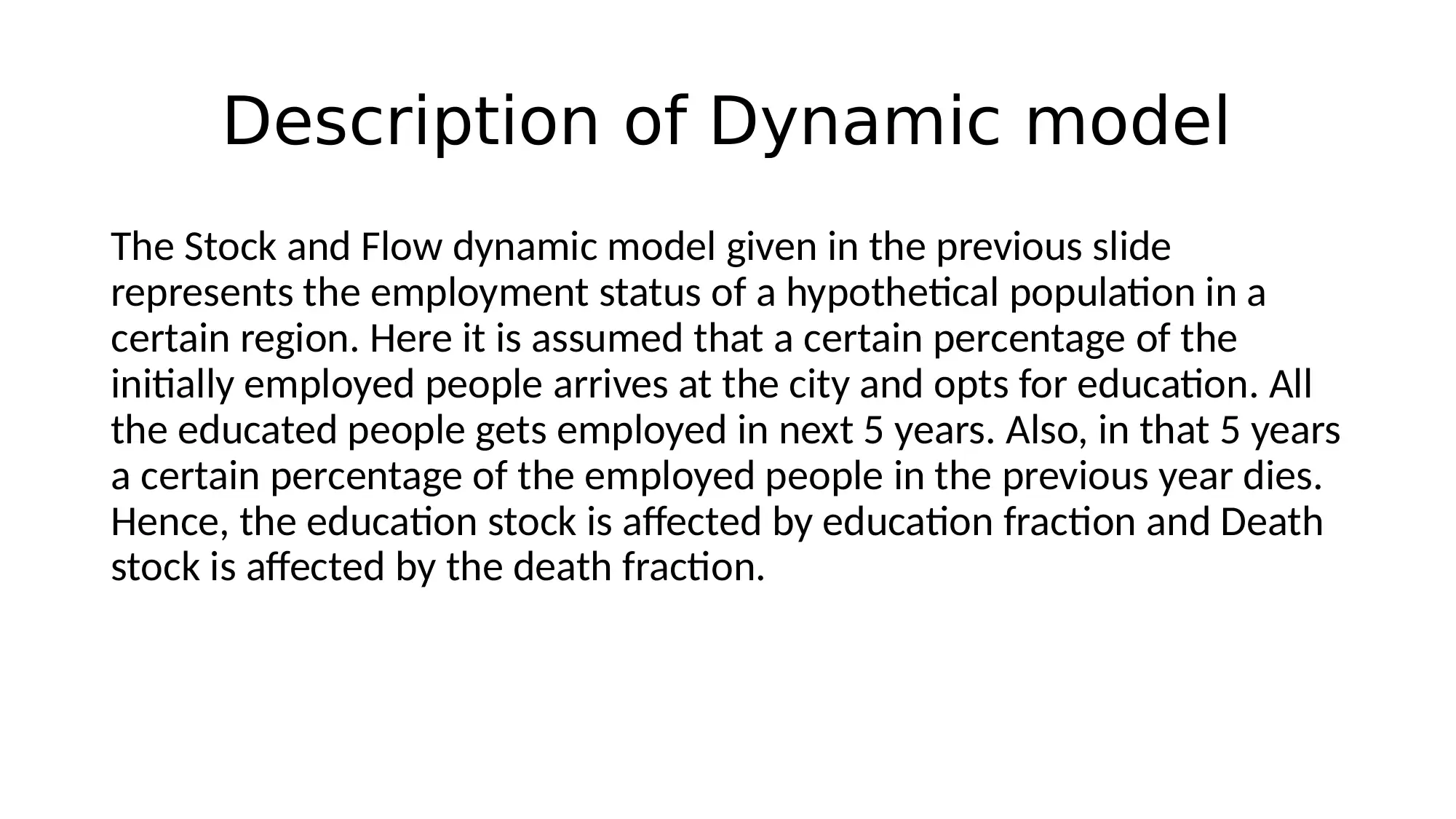

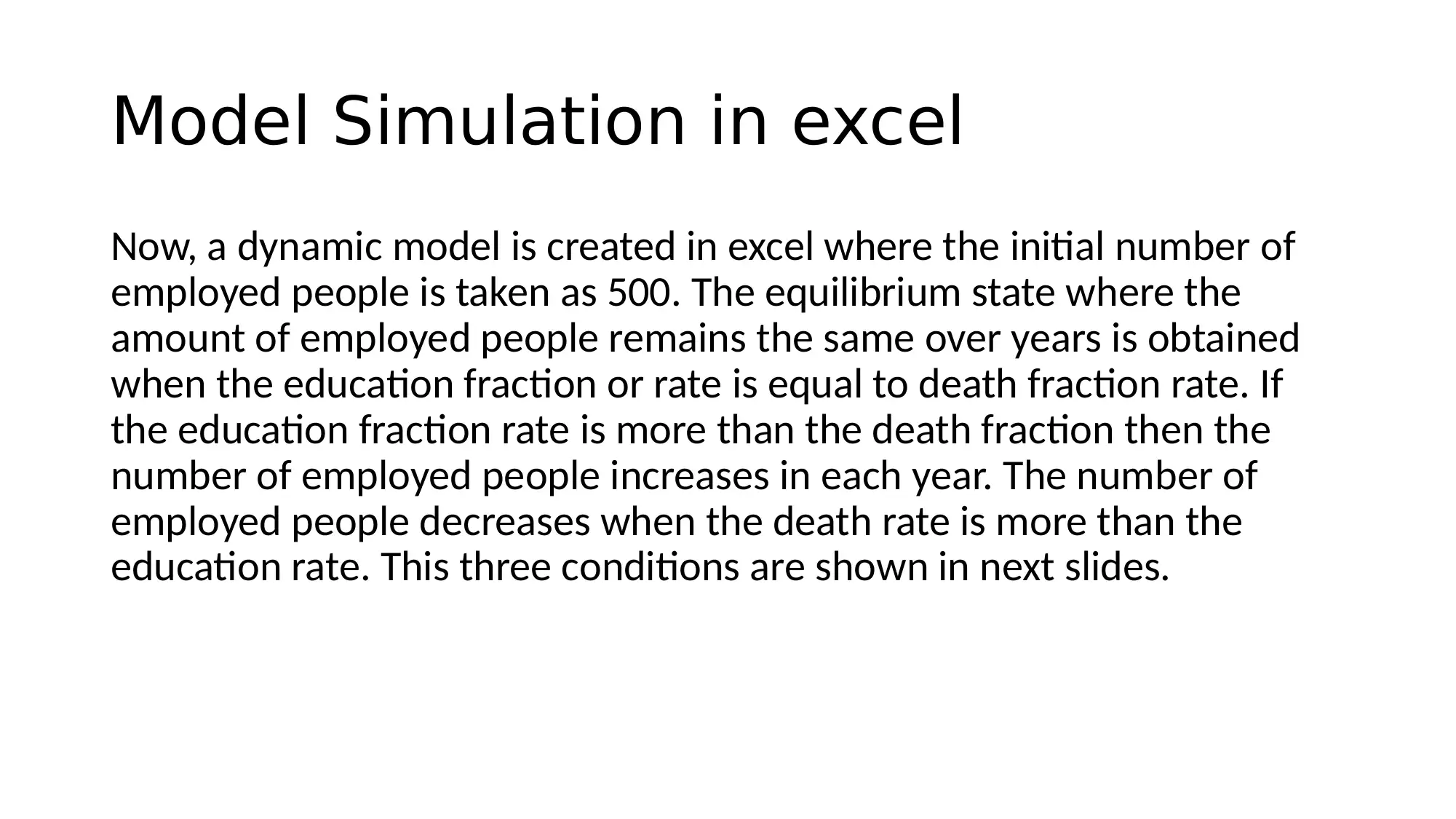
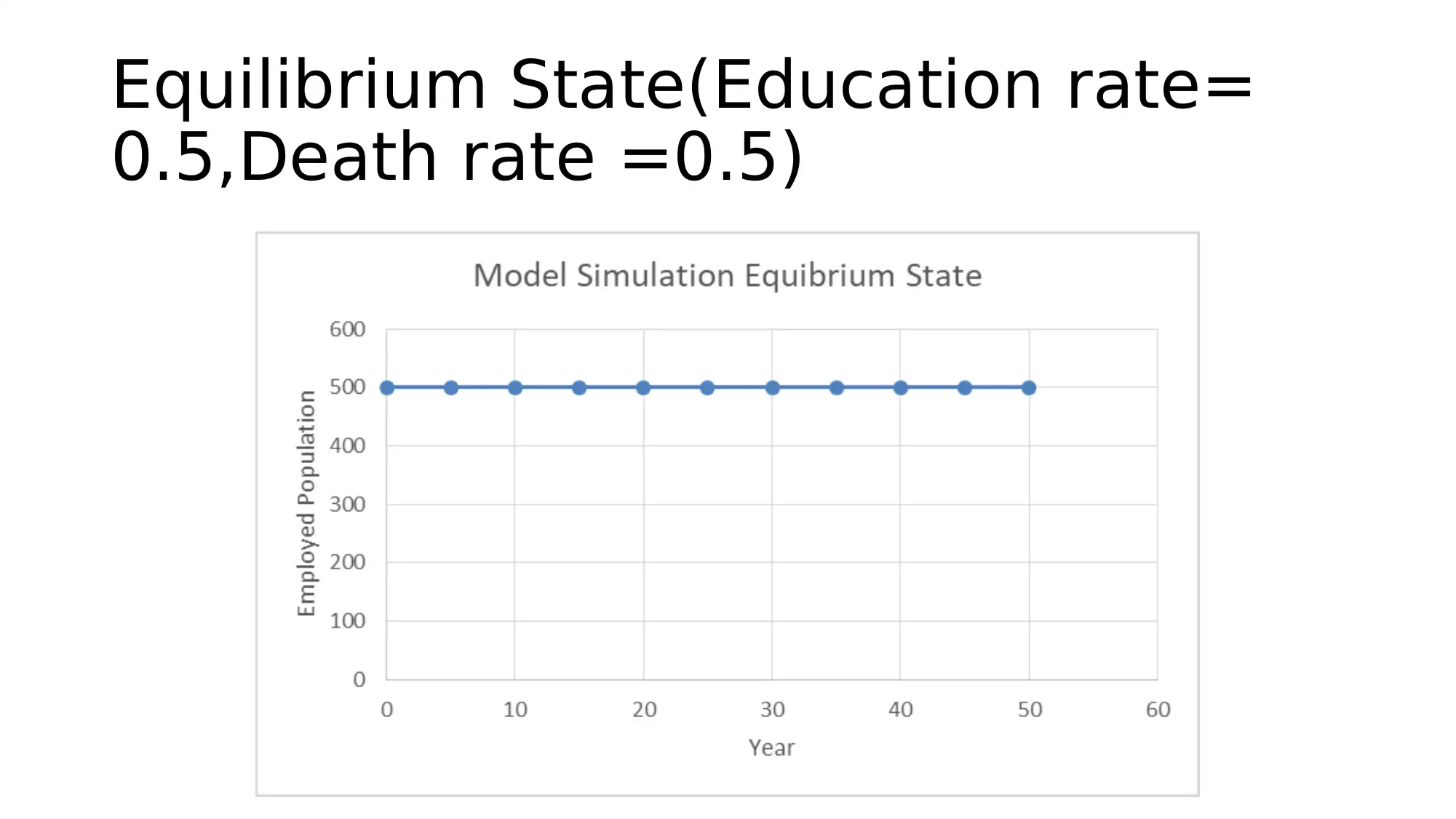
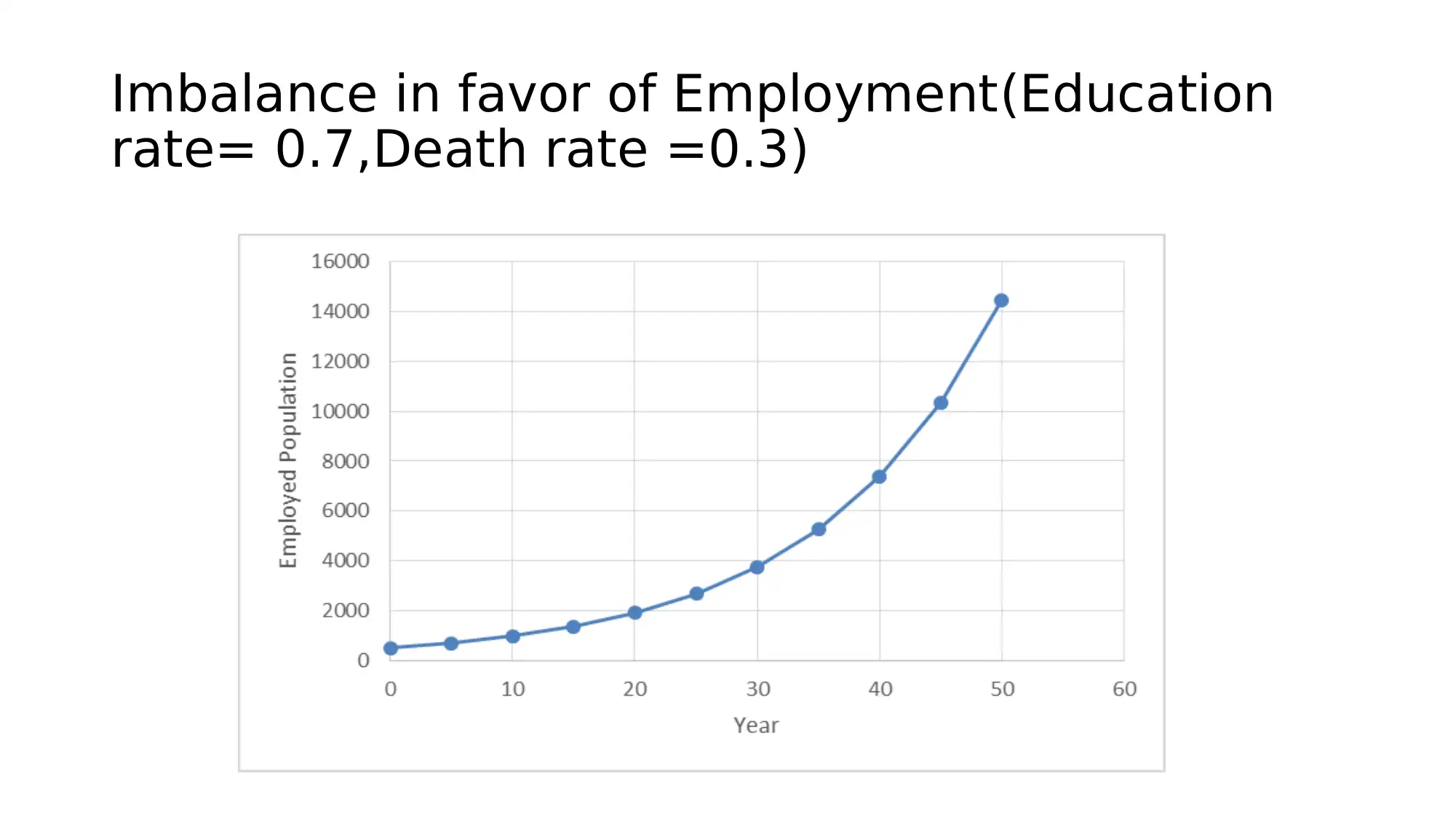
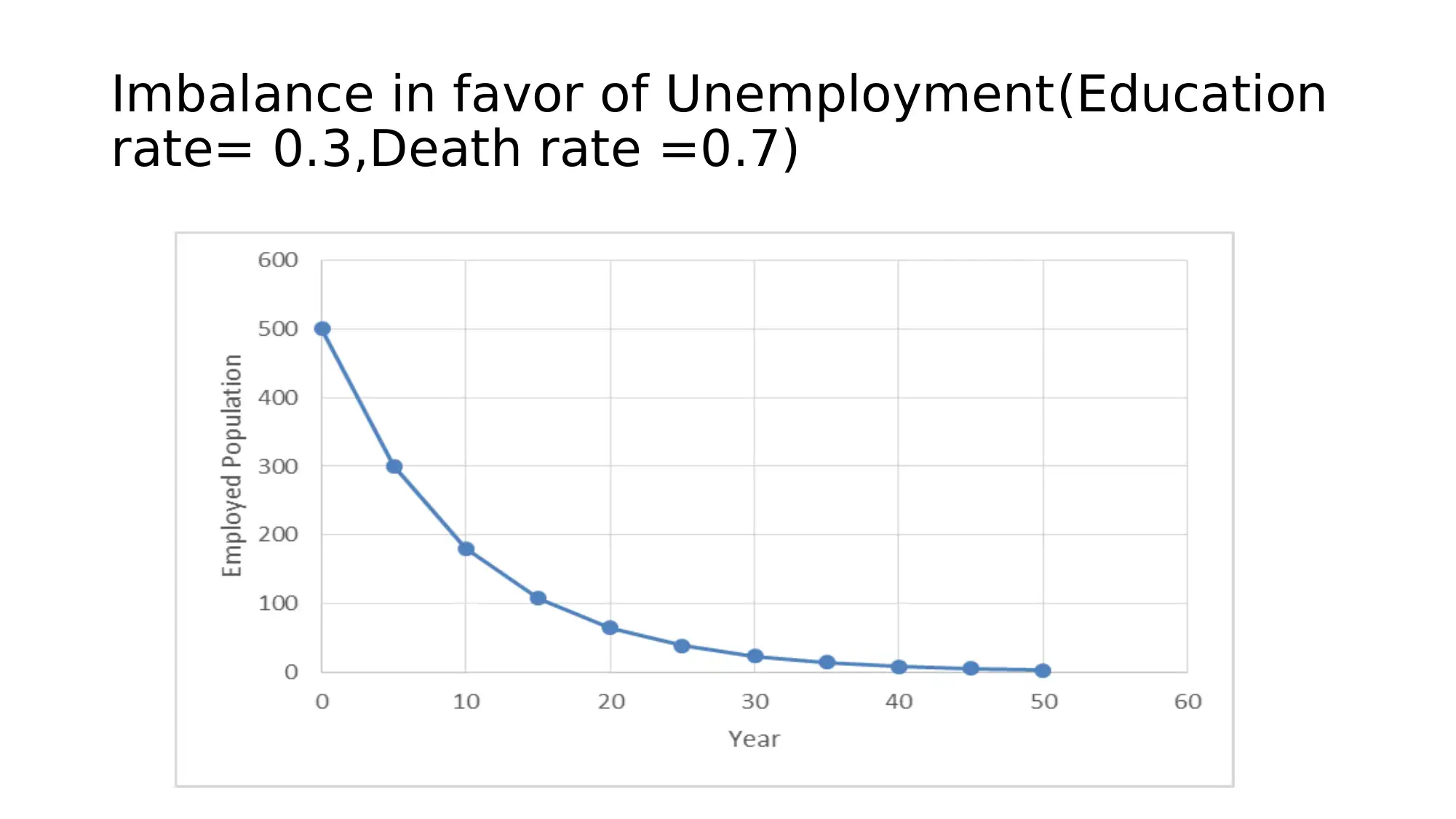
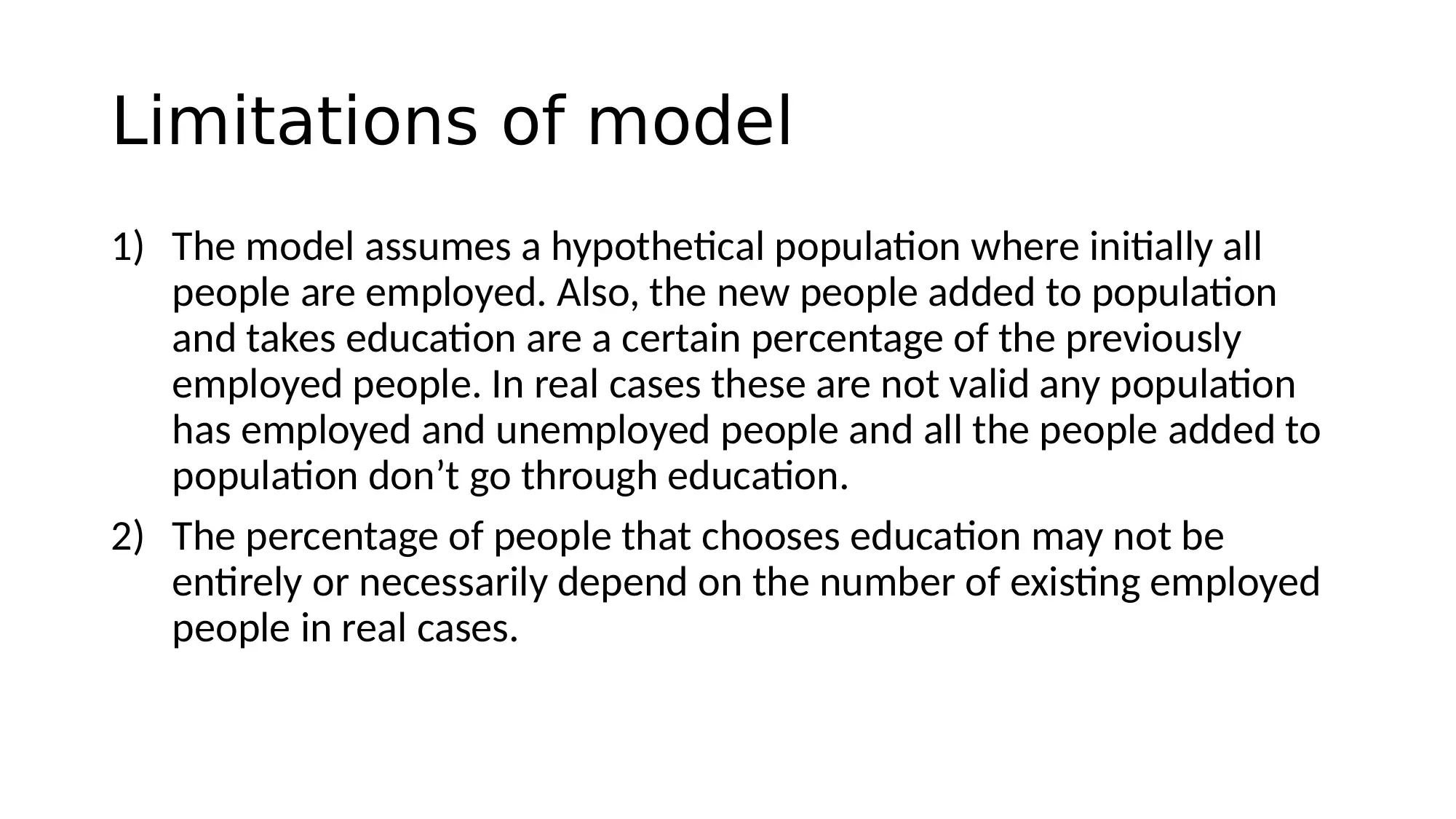
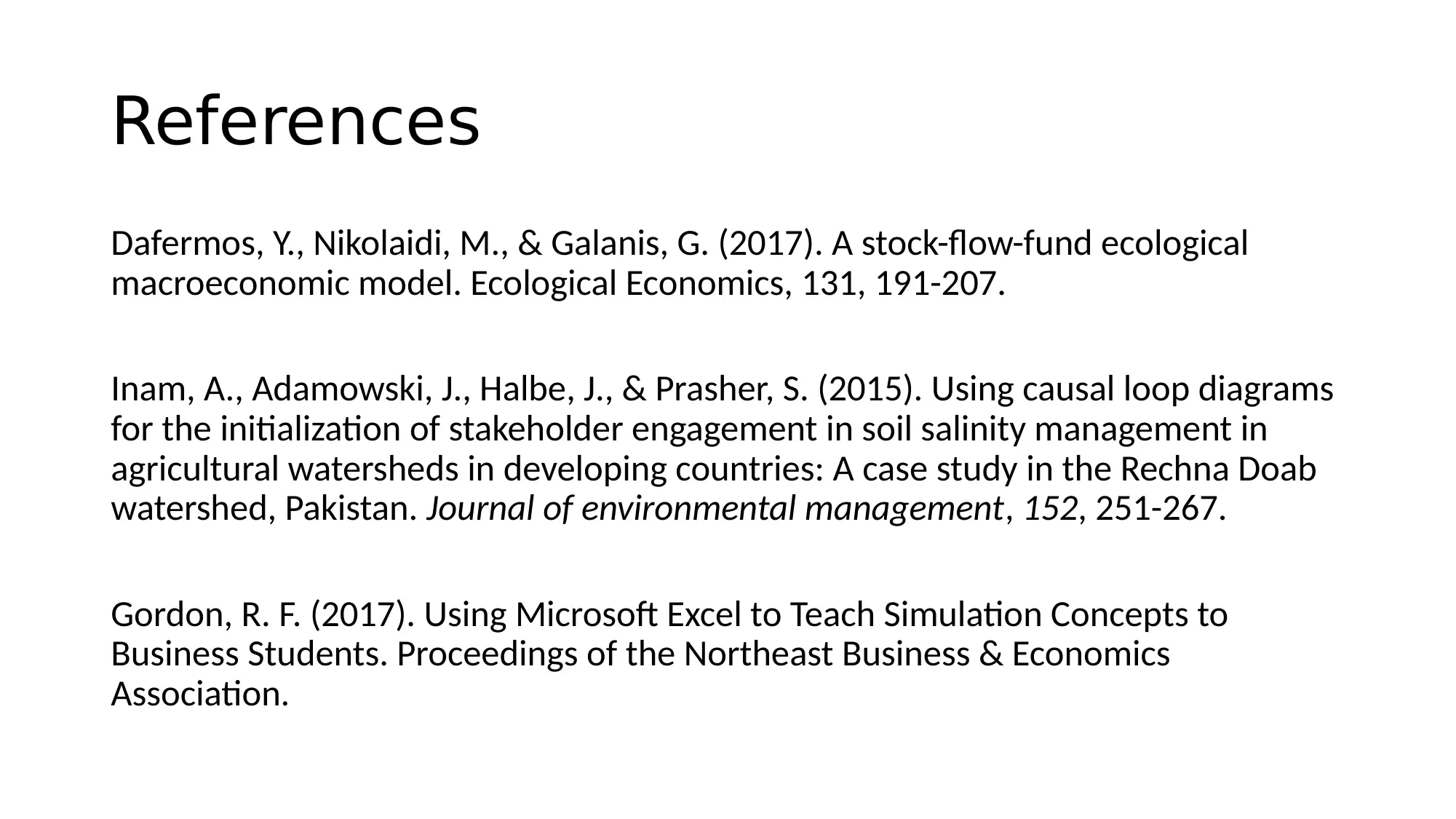
![[object Object]](/_next/static/media/star-bottom.7253800d.svg)